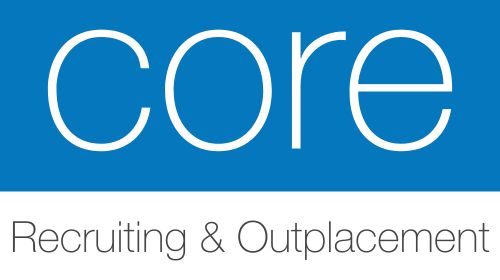
Mental Health Assessment In Nursing
FollowOverview
-
Founded Date July 30, 1993
-
Sectors Charity & Voluntary
Company Description
Mental Health Assessment In Nursing Tools To Ease Your Daily Lifethe One Mental Health Assessment In Nursing Trick That Should Be Used By Everyone Be Able To
Mental Health Assessment in Nursing: A Comprehensive Guide
Mental health assessments are an essential aspect of nursing practice, enabling healthcare experts to assess a person’s frame of mind, identify prospective concerns, and develop proper treatment strategies. Mental health concerns can considerably impact a client’s overall health and quality of life. Therefore, comprehensive assessments are required to make sure comprehensive care. This post will explore the significance of mental health assessments in nursing, the components of a mental health assessment, and typical assessment tools used by nurses.
Importance of Mental Health Assessment
The significance of performing mental health assessments can not be overemphasized. They serve numerous crucial functions, including:

-
Early Detection: Identifying early indications of mental health conditions can cause timely intervention, minimizing the risk of escalation.
-
Tailored Care: Through assessments, doctor can customize mental health care to fulfill private client needs, increasing the efficiency of treatment.
-
Comprehensive Understanding: Assessments provide insights into the emotional, psychological, and social factors affecting a patient’s mental health, enabling a holistic method to care.
-
Screen Progress: Regular assessments permit nurses to keep track of development and adapt treatment plans based upon changes in the client’s condition.
-
Building Rapport: Engaging clients in the assessment process assists develop trust and motivates open communication about mental health issues.
Elements of a Mental Health Assessment
A mental health assessment normally includes numerous key parts:
-
Patient History: Collecting info about the patient’s medical, psychiatric, and social history– including household history of mental health concerns.
-
Mental Status Examination (MSE): A structured assessment that assesses the client’s present mindset through observations and interaction, covering look, habits, state of mind, thought process, and cognitive functions.
-
Danger Assessment: Identifying any possible risks to the patient or others, such as thoughts of self-harm, suicidal ideation, or aggressiveness.
-
Psychosocial Assessment: Exploring the client’s social environment, including support systems, relationships, and life stressors that may impact mental health.
-
Standardized Tools: Utilizing verified assessment tools for reasonable and reliable measurement of mental health signs.
Common Mental Health Assessment Tools
Nursing professionals often use different standardized tools to perform thorough mental health assessments. Below is a table of some widely made use of assessment tools:
| Assessment Tool | Function | Population |
|---|---|---|
| Beck Depression Inventory (BDI) | Measures the severity of depression signs | Adults and Adolescents |
| Generalized Anxiety Disorder 7 (GAD-7) | Screens for generalized anxiety disorder | Adults |
| Patient Health Questionnaire-9 (PHQ-9) | Assesses depression severity and keeps track of treatment | Adults and Adolescents |
| Mini-Mental State Examination (MMSE) | Evaluates cognitive function and screen for dementia | Elderly |
| Alcohol Use Disorders Identification Test (AUDIT) | Identifies alcohol dependence and abuse | Adults |
Carrying Out a Mental Health Assessment
-
Preparation: Ensure a quiet, private area to carry out the assessment. Acquaint yourself with the patient’s background and any prior notes on their mental health.
-
Engagement: Establish relationship with the patient through a warm intro and ensuring them of privacy. Encouraging them to share honestly is critical.
-
Event Information: Use developed methods and the above components to gather thorough details. Employ open-ended questions to encourage patients to elaborate on their feelings and experiences.
-
Observations: Carefully observe non-verbal cues such as body language and psychological expressions. These observations can offer essential insights.
-
Documenting Findings: Record your findings accurately for future reference, making sure to maintain patient privacy and adhere to legal requirements.
Obstacles in Mental Health Assessment
While mental health assessments are an invaluable tool, several challenges may arise:
- Stigma: Patients might feel hesitant to go over mental health concerns due to societal stigma.
- Cultural Sensitivity: Different cultures might have differing beliefs about mental health, which may make complex the assessment process.
- Interaction Barriers: Language distinctions or cognitive impairments can impede efficient interaction.
- Predisposition: Nurses must understand their own biases and prejudices that might impact their assessment and treatment suggestions.
Frequently Asked Questions About Mental Health Assessment in Nursing
Q1: Why is a mental health assessment essential in nursing?A1: A mental
health assessment is important for determining mental health conditions early, customizing care to specific patient requirements, supplying a comprehensive understanding of the emotional and psychological elements impacting health, and monitoring development.

Q2: What ought to a nurse do if a client declines a mental health assessment?A2: If a client
declines an assessment, the nurse ought to discuss the value of the assessment, assure the patient about confidentiality, and explore their concerns. It may be useful to record the rejection and follow up in future interactions. Q3: How typically must mental health assessments beconducted?A3: The frequency of assessments depends upon the person’s requirements, the seriousness of symptoms, and treatment actions, with regular assessments usually performed throughout routine check-ups or when there are substantial modifications in the patient’s condition. Q4: Are there age-specific assessments?A4: Yes, specific assessment tools are designed for
different age, including children, teenagers, adults, and the senior. It’s vital to pick the proper tool for the patient’s age and situations. Mental health assessment in nursing is an important component of holistic client care. Through comprehensive
evaluations and the usage of standardized tools, nurses can recognize mental health difficulties and contribute considerably to developing efficient treatment strategies. By resolving challenges such as stigma and ensuring culturally sensitive practices, nurses can cultivate open interaction with patients, resulting in early intervention and enhanced mental health outcomes. As the understanding of mental health continues to evolve, so too must the techniques to assessment and care, ensuring that all clients receive the support they need for their mental wellness.
